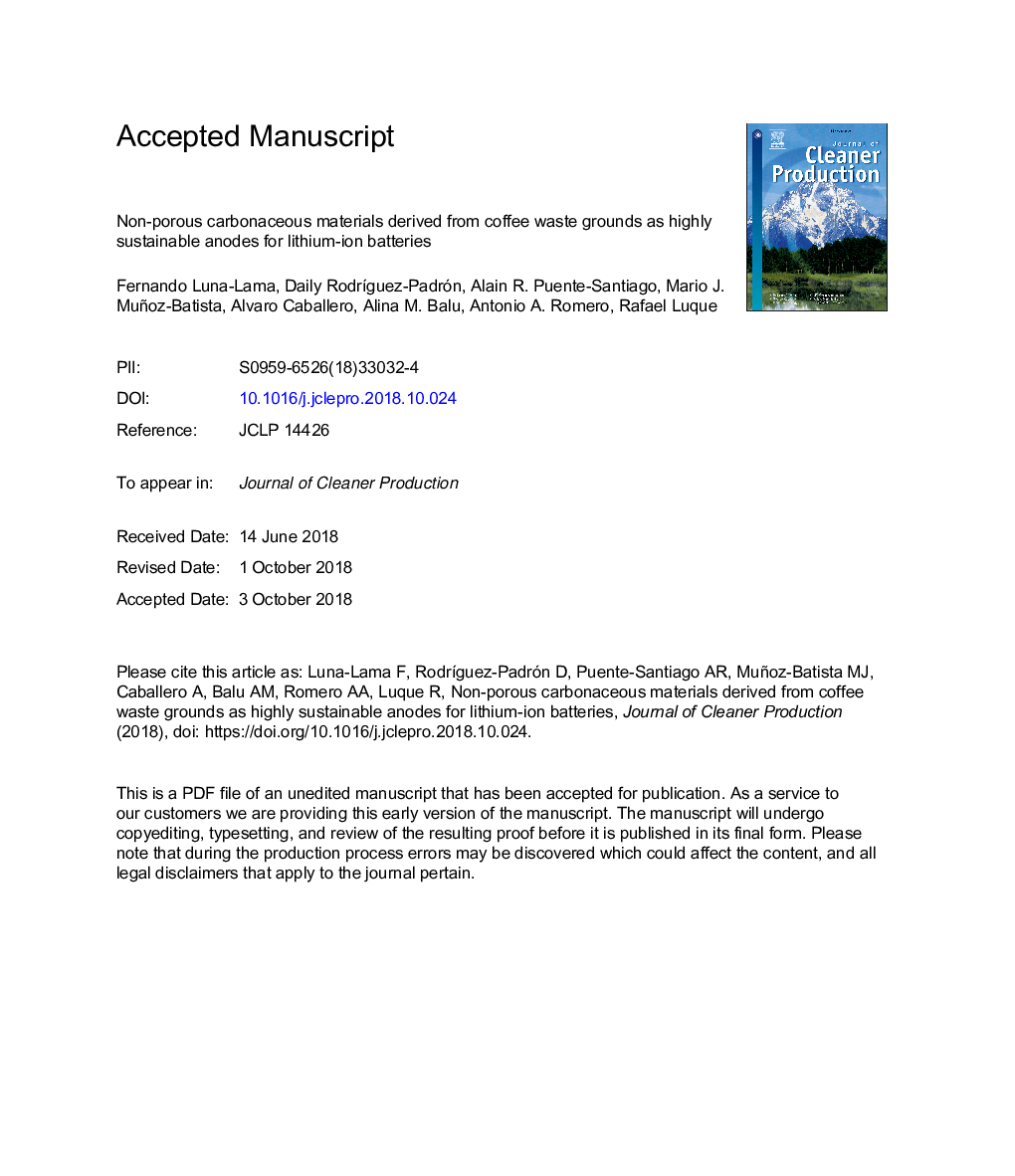| Article ID | Journal | Published Year | Pages | File Type |
|---|---|---|---|---|
| 11011091 | Journal of Cleaner Production | 2019 | 26 Pages |
Abstract
A carbonaceous material with desirable properties for lithium-ion batteries (LIBs) was successfully obtained using a low cost and eco-environmental approach based on the mechanochemical dry milling of spent coffee grounds (SCG) followed by further carbonization at 800â¯Â°C. The spent coffee grounds derived carbon material (C-SCG) was employed as anodic material delivering a specific capacity of 360â¯mAh gâ1 in the second cycle at current density of 0.1â¯Aâ¯gâ1. Additionally, the C-SCG material exhibited a competitive anode performance with a reversible capacity of 285â¯mAh gâ1 and a remarkable coulombic efficiency nearly to 100% from the 2nd cycle. The resulting LIBs showed remarkable capacities retention over 100 cycles with a decay rate per cycle of 0.23%. This work contributes to the development of eco-environmental batteries using low-cost materials as a promising solution for increasing energy storage demands.
Related Topics
Physical Sciences and Engineering
Energy
Renewable Energy, Sustainability and the Environment
Authors
Fernando Luna-Lama, Daily RodrÃguez-Padrón, Alain R. Puente-Santiago, Mario J. Muñoz-Batista, Alvaro Caballero, Alina M. Balu, Antonio A. Romero, Rafael Luque,
